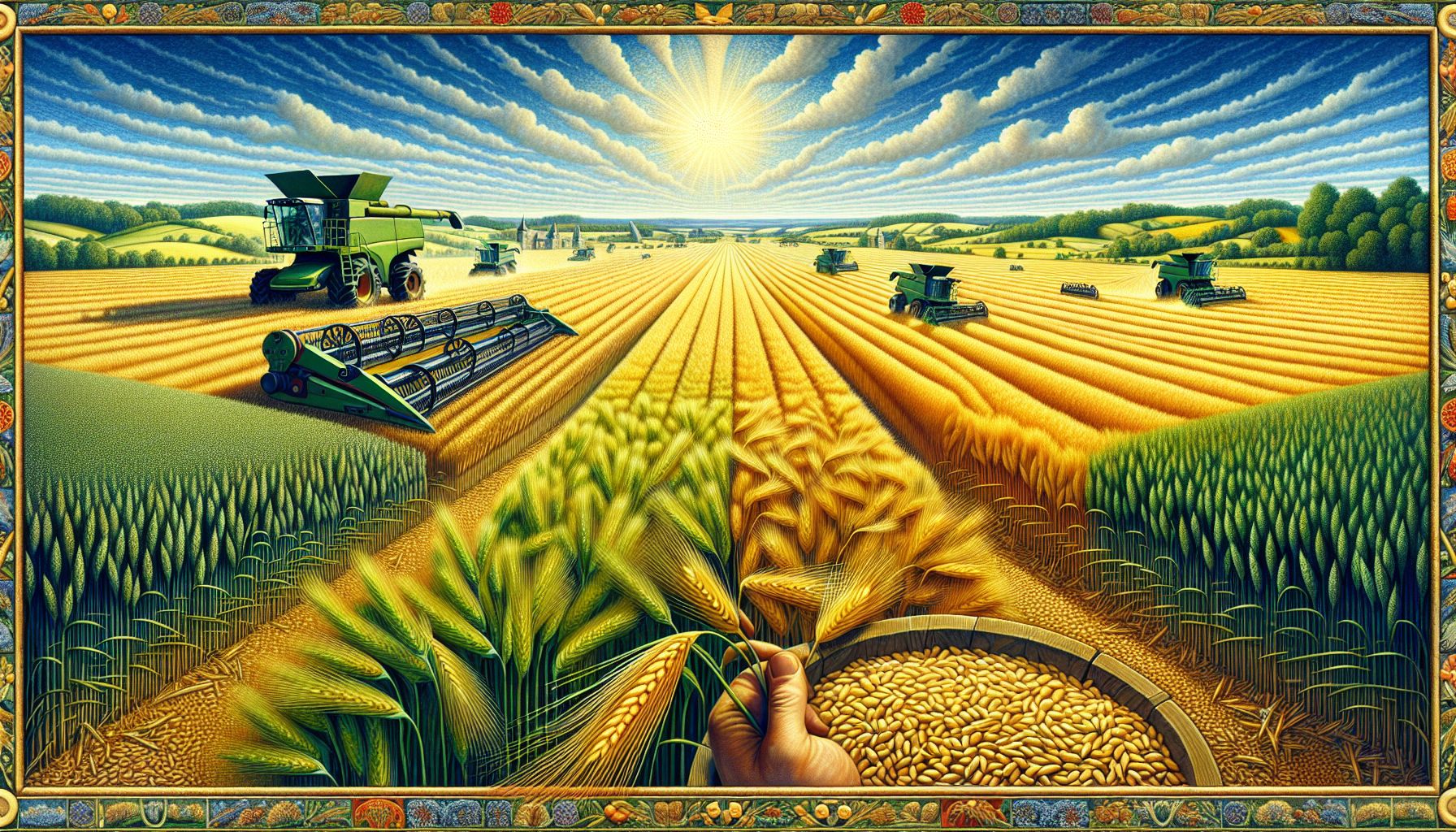HEINEKEN Achieves First Large-Scale Barley Harvest from Regenerative Agriculture

HEINEKEN has announced its first large-scale barley harvest from a regenerative agriculture model, part of the TRANSITIONS program, emphasizing sustainability and innovative agricultural practices.
Introduction to Regenerative Agriculture
Regenerative agriculture is an advanced farming practice that emphasizes improving soil health, biodiversity, climate resilience, and water conservation. Unlike conventional farming, which often depletes soil nutrients and harms the environment, regenerative agriculture seeks to restore and enhance the ecosystem. This approach has gained significant attention in recent years due to its potential to combat climate change and promote sustainable food production[1][2].
HEINEKEN’s Commitment to Sustainability
HEINEKEN, one of the world’s largest brewers, has taken a bold step towards sustainability by implementing a regenerative agriculture model in its barley production. This initiative is part of the TRANSITIONS program, which aims to reduce HEINEKEN’s scope 3 FLAG emissions by 30% by 2030. The program involves collaboration with VIVESCIA, a French agricultural cooperative, and its malt subsidiary, Malteurop. The focus is on soil health, biodiversity, climate adaptation, and water conservation[1][2].
Benefits of Regenerative Agriculture
The benefits of regenerative agriculture are manifold. Improved soil health leads to higher crop yields and increased plant diversity, which in turn enhances biodiversity. Regenerative practices also capture more carbon than they emit, helping to mitigate climate change. Additionally, farmers using regenerative methods have been found to be 78% more profitable than those using conventional practices. This profitability comes from reduced chemical inputs and healthier, more resilient crops[3][4].
How the Program Works
The TRANSITIONS program, led by VIVESCIA and supported by HEINEKEN, involves approximately 200 farmers in France for the 2024 harvest. The program aims to expand to 1,000 farmers by 2026, covering around 100,000 hectares. It includes experiments, farm assessments, action research, and farmer training to help achieve agro-ecological objectives. The harvested barley will be allocated to the French market, supporting local economies and strengthening global supply chains[1][2].
Leadership and Vision
Key figures in this initiative include Hervé le Faou, Senior Director Global Procurement at HEINEKEN, and Christoph Büren, President of VIVESCIA Group. Their shared vision is to transition towards a decarbonized, productive agricultural model that protects biodiversity and supports farmers. The collaboration aims to eliminate financial and technical barriers to promote regenerative farming and sustainable grain production[1][2].
Supporting Local Economies and Global Supply Chains
The regenerative barley harvest will primarily support the French market, reflecting HEINEKEN’s commitment to local economies. This initiative also aims to create a globally connected supply chain that is both resilient and sustainable. By purchasing most of the barley production from participating farmers, HEINEKEN is not only reducing emissions but also ensuring economic stability for farmers[1][2].

